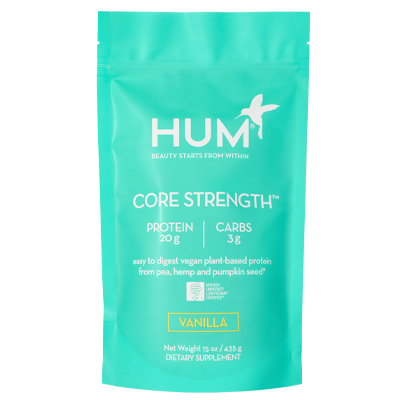3 Plant-Based Diet Benefits for Your Health and the Planet

Chances are you’ve probably heard that plant-based diets are not only incredible for human health, but also good for the planet. Indeed, scientific research supports these claims.
In 2019, a non-partisan non-profit called EAT collaborated with a peer-reviewed medical journal to investigate our food supply chain, resulting in the EAT-Lancet report. This thorough report was co-authored by scientific experts in health, agriculture, and sustainability from 16 different countries. Their conclusion: “Food is the single strongest lever to optimize human health and environmental sustainability on Earth.” Further, prioritizing plant-based foods is the specific solution. Their chief recommendations included:- drastically cutting down meat
- an increased focus on healthy plant foods
- system production changes to reduce food waste

What is a plant-based diet?
A plant-based diet is one that primarily consists of:
- fruits
- vegetables
- nuts
- seeds
- whole grains
- legumes
- beans
The science is pretty clear that a predominantly plant-based diet is best for overall health, but again, that doesn’t mean it has to be plant-exclusive. The good news is that all forms of plant-based eating—vegetarian, vegan, flexitarian, goat-cheese-on-the-weekend-itarian—are all healthier eating patterns than the standard American omnivore diet.
Equally important, a plant-based diet doesn’t just positively impact human health. It also supports the health of our planet. In a nutshell, the way we currently grow food isn’t sustainable—especially for a population that’s expected to swell to 9 billion people by 2050.Plant-Based Diet Benefits
Plants contain a variety of nutrients, including but not limited to:
- fiber
- antioxidants
- vitamins + minerals
- healthy fatty acids

1. It supports Healthy Skin
A 2020 review published in the Journal of Clinical and Aesthetic Dermatology found that a whole- food, plant-based diet may assist in preventing dull skin and fine lines (among other skin concerns).
The review found that the plant-based diet helped to “lengthen telomeres and reverse the aging process of DNA.” It’s this mechanism that plays a role in longevity, as well as skin aging specifically.
A plant-based diet is also packed with beneficial antioxidants for the skin including:
- vitamin E
- vitamin C
- coenzyme Q10
- chlorophyll
- zeaxanthin
2. It Supports Gut Health
Plant foods like whole grains, vegetables, legumes, and fruits are also rich in fiber, which can help reduce cholesterol levels and improve gut health.
Certain plant fibers, known as prebiotics, produce short-chain fatty acids (or SCFAs) when fermented by the gut. These SCFAs can improve digestion and provide fuel for colonocytes.
This helps to maintain a healthier gut barrier to fight agaisnst pathogens that can otherwise cause health imbalances.
3. It Requires Fewer Natural Resources
The most recent statistics from the World Resources Institute indicate that it takes about nine calories to feed a chicken to get one calorie out. That means nine times more land, nine times more water, and nine times more pesticides and herbicides.
Not to mention, chickens are by far the most efficient animal when it comes to this conversion. The comparison is even more extreme when it comes to producing beef or pork.
Also, that number doesn’t take into account the energy and resources it takes to ship animals and animal products. Shipping crops to the feed mill and animals to meatpacking plants requires additional fuel and energy. Similarly, simply operating these feed mills, factory farms, and meatpacking plants requires energy resources. By contrast, whole-food plant produce requires fewer facilities from beginning to end.
In sum, intensive animal farming is a very inefficient process. Moreover, the health benefits of reducing animal-based foods and increasing plant-based foods in your diet are so well-documented in research.

Final Thoughts
As you can see, there are a number of plant-based diet benefits for your skin, digestion, and the environment.
If you’re already eating this way, great! If you’re not and are plant-curious, you can start by making simple adjustments, such as:
- swapping cow’s milk for plant-based milks like almond, soy, or oat
- replacing refined grain products with whole grain ones
- adding in plant proteins (like beans and lentils) to dishes instead of chicken, beef, or pork









